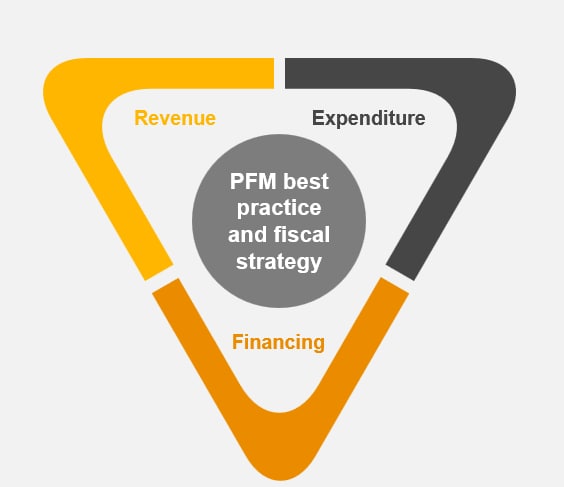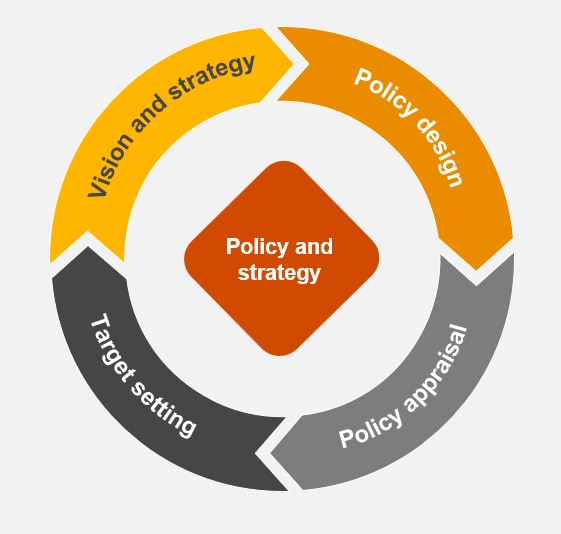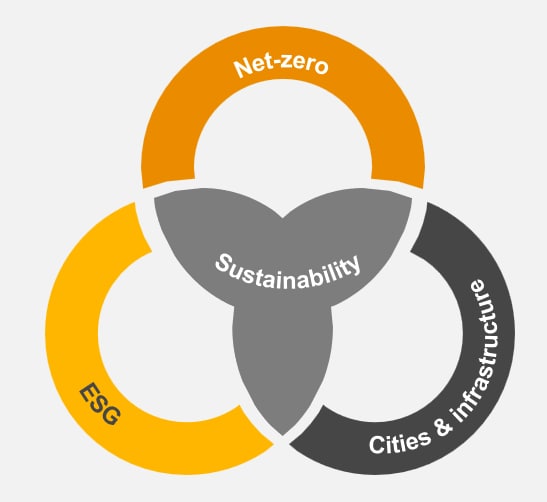
Economics and Sustainability
We help policymakers and businesses address some of their most critical policy and strategic questions
- The fiscal imperative
- The economic imperative
- The environmental imperative
- The social imperative
The fiscal imperative
How to improve the impact of public spending?
How to maintain sustainable levels of debt to fund public investments?
What should be the priorities in the medium-term fiscal plan?
How to diversify fiscal revenue sources?
What would be the effects of introducing a new tax or service fee?

The economic imperative
How to improve national competitiveness?
How to design an economic strategy for the economy?
How to set targets for economic development and policy initiatives?
What does a systematic approach to policy making look like?
How can a government entity tell if its policy has had the desired impacts?

The environmental imperative
What is a company’s carbon footprint and how does this compare to its peers?
How can a utility company integrate sustainability as a core element of its business agenda?
How can government incentivise investment in renewable energy?
How can environmental considerations be built into the public financial management system?

The social imperative
How can we create employment opportunities and improve quality of life?
What is the economic, social and environment impact of giga projects?
What are the impacts of labour market / localisation policies?
What are the megatrends and developments reshaping the socio-economic landscape?
How can governments prioritise public investments in line with society’s needs?

How can we help you?
Our team of economists and sustainability experts champion leading practices and bring deep expertise across four broad areas. Click on the proposition links below to learn more about our areas of expertise:
We can support policymakers and businesses make better spending decisions
Appraisal, monitoring and evaluation
Impact assessment frameworks and tools
Impact investing

We can help bring efficiency and financial sustainability to the management of public resources
Fiscal frameworks and public finance reforms
Revenue policies and strategies
Expenditure policies
Managing public investment
Financing
Green public financial management

We set the strategic foundations for sustainable long-term economic growth
Economic development strategies
Health economics
Labour and human capital economics
Regulatory economics

We help you throughout your sustainability strategic planning and execution process, to capitalise on ESG opportunities and manage ESG risks
Net zero baselining, strategy and transformation
Corporate sustainability and ESG
Cities & infrastructure

Client case studies
Contact us

Richard Boxshall
Global Economics Leader and Middle East Chief Economist, PwC Middle East
Tel: +971 (0)4 304 3100



Salah Salah
Director | Public Finance and Fiscal Policy, PwC Middle East
Tel: +971 (0)54 445 5881

Sebastian Turner
Director | Impact Assessment and Economic Modelling, PwC Middle East
Tel: +966 (0)56 592 0691

James Walton
Director | Economic Policy and Strategy, PwC Middle East
Tel: +971 (0)54 793 4200

Benjamin Copley
Director | Public Finance and Fiscal Policy, PwC Middle East
Tel: +971 (0)50 230 0965











